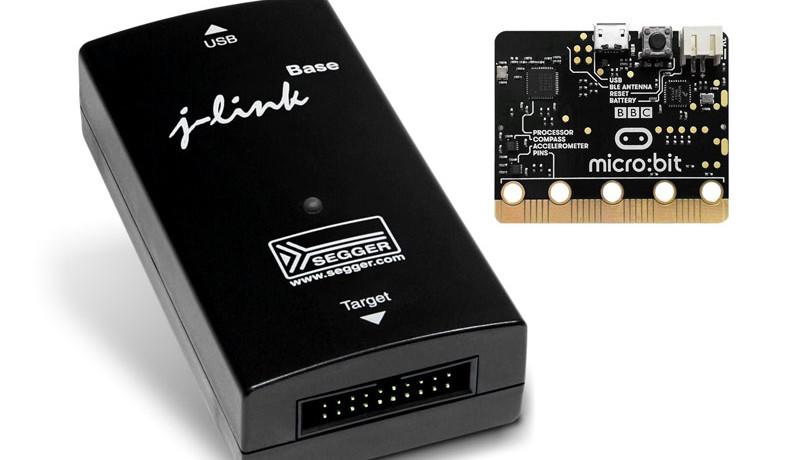New firmware for BBC micro:bit adds J-Link interface

The small but powerful BBC micro:bit board released a few months ago by the 100 K's at a time to 12 year old UK schoolkids, and that is now also available to people willing to pay for it, is getting support from an increasing number of companies. The micro:bit is meant to be programmed through online tools that lack real debugging support, making the development of serious applications a tad cumbersome. New firmware has been made available to overcome this problem, allowing the board to be targeted like any other microcontroller board by professional (offline) development tools.
The small but powerful BBC micro:bit board released a few months ago by the 100 K's at a time to 12 year old UK schoolkids, and that is now also available to people willing to pay for it, is getting support from an increasing number of companies. The micro:bit is meant to be programmed through online tools that lack real debugging support, making the development of serious applications a tad cumbersome. New firmware has been made available to overcome this problem, allowing the board to be targeted like any other microcontroller board by professional (offline) development tools.
The new & free firmware, developed by Segger, replaces the micro:bit’s DAPLink programming interface by a J-Link port while retraining the mbed-style drag & drop programming functionality of the original interface. Upgrading the firmware therefore does not compromise compatibility with the existing online tools.
Although DAPLink also allows for offline programming and debugging, the J-Link port is much faster, and offers features such as ultra-fast flash download & debugging speeds, the free-to-use GDBServer as well as application development using an IDE. J-Link is supported in all major IDEs giving student developers flexibility in their choice of IDEs.
The new & free firmware, developed by Segger, replaces the micro:bit’s DAPLink programming interface by a J-Link port while retraining the mbed-style drag & drop programming functionality of the original interface. Upgrading the firmware therefore does not compromise compatibility with the existing online tools.
Although DAPLink also allows for offline programming and debugging, the J-Link port is much faster, and offers features such as ultra-fast flash download & debugging speeds, the free-to-use GDBServer as well as application development using an IDE. J-Link is supported in all major IDEs giving student developers flexibility in their choice of IDEs.
